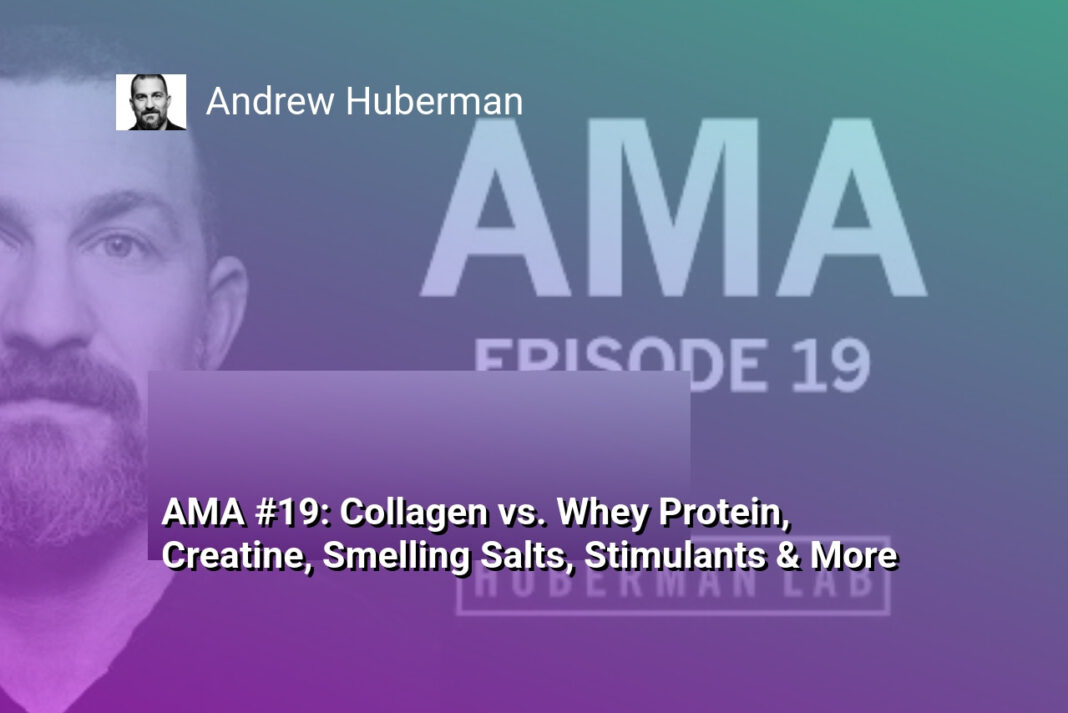The Bottom Line:
Here’s the summary in the requested format:
- I discovered that whey protein is more effective for muscle growth due to its high leucine content, outperforming collagen and bone broth in protein synthesis.
- Collagen protein offers notable benefits for skin health, with consistent consumption potentially improving elasticity and appearance.
- Nutritional experts recommend consuming approximately 1 gram of protein per pound of lean body weight, prioritizing whole food sources over supplements.
- Whey protein might trigger acne in some individuals by potentially influencing metabolic pathways and insulin levels, so personal monitoring is crucial.
- A balanced approach to nutrition involves integrating diverse protein sources, consuming ample vegetables and fruits, and understanding individual bodily responses to dietary components.
Muscle Growth and Recovery: Whey Protein’s Superior Performance
Leucine: The Muscle-Building Powerhouse
Whey protein stands out in the protein supplement market due to its exceptionally high leucine content, a critical branched-chain amino acid directly responsible for stimulating muscle protein synthesis. Unlike collagen protein, which contains minimal leucine, whey provides a robust amino acid profile that triggers muscle growth mechanisms more effectively. Research indicates that approximately 2.5 grams of leucine per serving is required to maximize muscle protein synthesis, a threshold whey protein consistently meets and often exceeds.
Rapid Absorption and Muscle Recovery Dynamics
The unique molecular structure of whey protein enables rapid digestion and absorption, making it an ideal post-workout supplement for athletes and fitness enthusiasts. Within 30 minutes of consumption, whey protein begins delivering essential amino acids to muscle tissues, accelerating recovery processes and reducing muscle protein breakdown. This swift nutrient delivery contrasts sharply with slower-absorbing protein sources like collagen, which are less effective in immediate muscle repair and growth stimulation.
Scientific Evidence of Performance Enhancement
Numerous clinical studies have demonstrated whey protein’s superior performance in muscle growth and recovery. Resistance training participants supplementing with whey protein consistently show greater muscle mass gains, increased strength, and faster recovery times compared to those using alternative protein sources. The protein’s high biological value, meaning the body can efficiently utilize a higher percentage of consumed protein, further solidifies its position as a premier muscle-building supplement. Additionally, whey protein’s ability to modulate insulin-like growth factor-1 (IGF-1) contributes to its muscle-building efficacy, providing a comprehensive approach to athletic performance and muscle development.
Collagen and Bone Broth: Skin Health and Nutritional Benefits
Unlocking Skin Regeneration with Collagen Proteins
Collagen proteins play a crucial role in maintaining skin health and structural integrity. These proteins are fundamental building blocks that contribute to skin elasticity, hydration, and overall dermal resilience. As individuals age, natural collagen production declines, leading to visible signs of aging such as wrinkles, reduced skin firmness, and decreased moisture retention. Supplementing with collagen can help counteract these age-related changes by providing essential amino acids that support skin cell regeneration and repair mechanisms.
Nutritional Composition of Bone Broth
Bone broth represents a nutrient-dense source of collagen and other beneficial compounds. Unlike isolated protein supplements, bone broth contains a complex profile of minerals, amino acids, and connective tissue components. The slow-simmering process extracts collagen, glycine, proline, and hydroxyproline – amino acids critical for skin health and connective tissue maintenance. Regular consumption can potentially improve joint flexibility, support gut health, and enhance skin’s natural healing processes. The gelatin derived from bone broth also provides additional protein building blocks that contribute to skin structure and resilience.
Clinical Insights into Collagen Supplementation
Research indicates that consistent collagen supplementation can yield measurable improvements in skin health. Studies suggest consuming approximately 15 grams of collagen daily can enhance skin elasticity, reduce wrinkle depth, and increase moisture levels. The bioavailability of collagen peptides allows for efficient absorption, enabling targeted support for dermal regeneration. While individual responses may vary, many participants in clinical trials report noticeable improvements in skin texture and appearance after several weeks of consistent supplementation. These findings underscore the potential of collagen as a strategic nutritional intervention for maintaining youthful, healthy skin.
Optimal Protein Intake Strategies for Athletes and Fitness Enthusiasts
Strategic Protein Consumption for Performance
Athletes and fitness enthusiasts require a nuanced approach to protein intake that goes beyond basic nutritional guidelines. The primary goal is to optimize muscle protein synthesis, recovery, and overall performance through targeted protein consumption strategies. Research indicates that timing, quantity, and protein source quality play critical roles in achieving optimal physiological outcomes.
Precision Protein Dosing Techniques
Effective protein intake involves more than simply consuming large quantities. Experts recommend distributing protein intake across multiple meals throughout the day, with an emphasis on consuming 20-30 grams of high-quality protein per meal. This approach maximizes muscle protein synthesis and ensures consistent amino acid availability for muscle repair and growth. For individuals engaged in intense training, consuming protein within 30 minutes post-workout can significantly enhance muscle recovery and adaptation.
Individualized Protein Source Selection
Different protein sources offer unique metabolic advantages depending on an individual’s specific fitness goals. Whey protein, characterized by its rapid absorption and high leucine content, excels in promoting muscle protein synthesis and is particularly effective for post-exercise recovery. Conversely, slower-absorbing proteins like casein provide prolonged amino acid release, which can be beneficial during periods of extended metabolic recovery or overnight muscle repair. Athletes should consider their specific training objectives, metabolic requirements, and individual physiological responses when selecting protein sources to optimize their nutritional strategy.
The recommended protein intake ranges from 1.6 to 2.2 grams per kilogram of body weight for individuals engaged in regular resistance training, with variations based on training intensity, body composition goals, and individual metabolic factors. Protein powders should be viewed as supplementary to a comprehensive whole food nutrition plan, ensuring a balanced approach to dietary protein consumption.
Understanding Potential Side Effects: Whey Protein and Acne Connections
The Biological Mechanisms Behind Whey Protein and Skin Reactions
Whey protein’s potential link to acne stems from its complex biochemical interactions within the human body. The protein’s high leucine content can stimulate the mammalian target of rapamycin (mTOR) pathway, which plays a critical role in cellular metabolism and hormone regulation. When activated, this pathway can potentially increase sebum production and trigger inflammatory responses in skin tissues, creating conditions more conducive to acne development.
Hormonal Influences and Insulin Response
Insulin-like growth factor 1 (IGF-1) levels may be significantly impacted by whey protein consumption. Studies suggest that the rapid absorption and high glycemic index of whey protein can cause quick insulin spikes, which might subsequently elevate IGF-1 levels. These hormonal fluctuations can stimulate sebaceous gland activity, potentially leading to increased oil production and a higher likelihood of acne breakouts, particularly in individuals predisposed to skin sensitivity.
Individual Variability and Skin Sensitivity
Not all individuals will experience identical reactions to whey protein supplementation. Genetic predisposition, existing hormonal balance, overall diet, and personal skin characteristics significantly influence how one’s body responds to protein supplements. Some people might notice immediate skin changes, while others remain entirely unaffected. Dermatological research indicates that approximately 10-15% of protein supplement users might experience noticeable skin-related side effects, emphasizing the importance of personalized nutritional approaches and careful monitoring of bodily responses when introducing new dietary components.
Personalized Nutrition: Choosing the Right Protein for Your Body
Understanding Individual Protein Needs
Every individual’s nutritional requirements are unique, influenced by factors such as age, gender, activity level, fitness goals, and underlying health conditions. While whey protein excels in muscle protein synthesis due to its high leucine content, collagen protein offers distinct advantages for joint health, skin elasticity, and connective tissue repair. Athletes and fitness enthusiasts might prioritize whey’s muscle-building properties, whereas individuals focused on skin health and recovery might lean towards collagen supplementation.
Matching Protein to Fitness and Health Goals
Selecting the right protein involves carefully evaluating your specific objectives. For muscle growth and recovery, whey protein remains the gold standard, providing rapid amino acid absorption and superior muscle protein synthesis. Individuals engaged in strength training or high-intensity workouts will benefit most from whey’s rapid protein delivery. Conversely, those dealing with joint issues, skin aging, or seeking connective tissue support might find collagen more advantageous, particularly when consuming approximately 15 grams daily over sustained periods.
Personalized Protein Response and Monitoring
Individual responses to protein supplements can vary significantly. Some individuals might experience adverse reactions like acne when consuming whey protein, potentially due to its impact on insulin levels and the mTOR pathway. It’s crucial to monitor your body’s response, track any skin changes, and adjust protein intake accordingly. Consider rotating between protein sources, maintaining a balanced diet rich in vegetables and fruits, and ensuring that protein powders complement rather than replace whole food nutrition. Aim for approximately 1 gram of protein per pound of lean body weight, with 60-70% sourced from whole foods and the remainder from targeted protein supplements.





